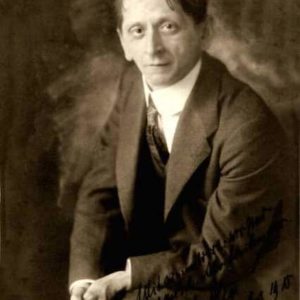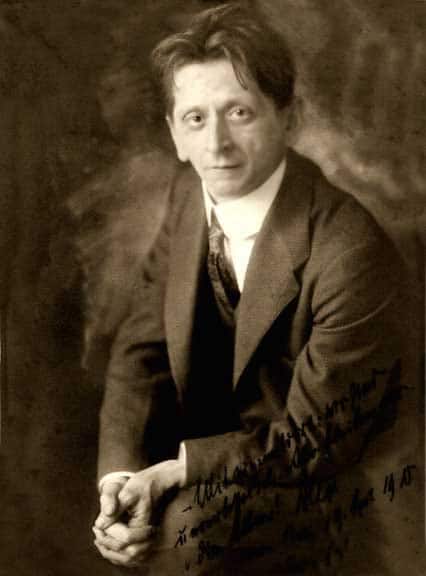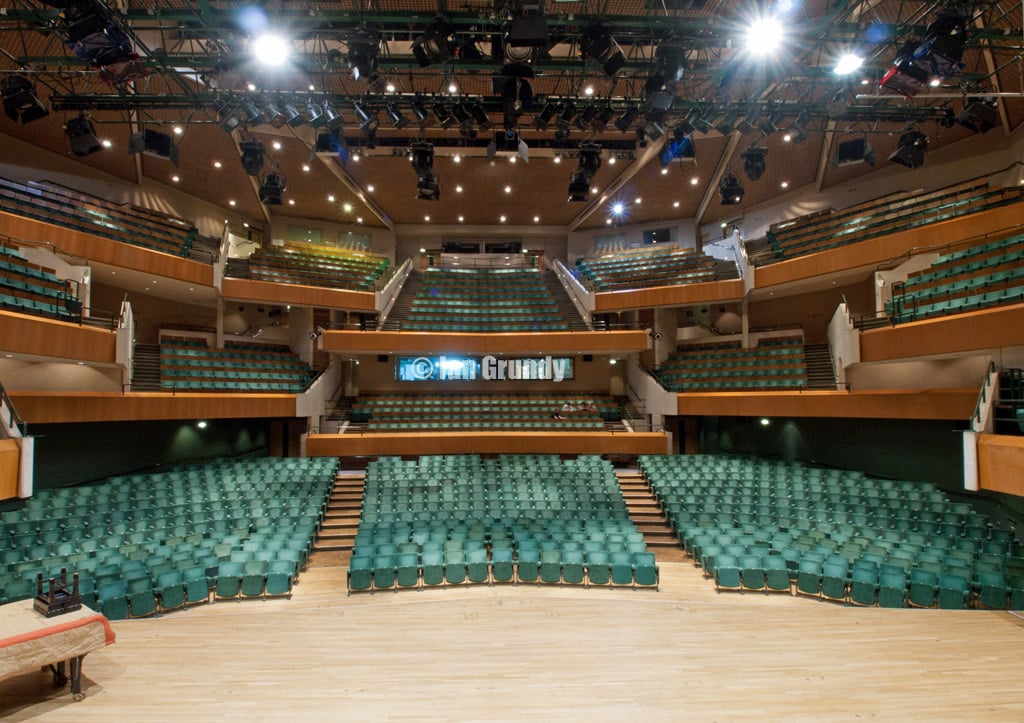The unluckiest composer that ever lived
mainFrom my monthly essay in the new issue of The Critic:
Has there ever been an unluckier composer than Alexander Zemlinsky? Mentored by Brahms, commissioned by Mahler, Zemlinsky gave music lessons to Arnold Schoenberg and Erich Korngold and wrote orchestral suites that were literally the last word in late romanticism as the world hurled itself into war.
In the 1920s he did more than anyone to advance modern opera in Prague and Berlin, narrowly escaping Hitler’s clutches in 1939. But with each step up the ladder, Zemlinsky hit a snake. Mahler left Vienna months after he signed on. His students outshone him, opera houses took him for granted and no sooner did he find a publisher in America than he was felled by a stroke, dying in slow stages aged 70.
Posterity has been no kinder. Riding the Mahler wave in the 1980s, his music paled by false comparison. A 150th anniversary revival planned for 2021 has been choked off by Covid…
Read on here.







There is so much music that should be heard, compared to the…
I don’t even know where to begin. Where most of what one hears has become fodder for a celebrity culture, than yes, one hears numerous version of what sounds like corporate competition between different brands of [milk?], only those doing the competing all wouldn’t think it. And one misses a lot of music that’s simply art and not entertainment, of stimulant for romantic escapism.
Back when Renata Tebaldi was singing, then the romantic repertoire was young enough that she didn’t fall into the niche it has become presently. To me, the only other singers of the same calber would be Elly Ameling or Julia Lezhneva, both not singing, or not having sung standard romantic operatic repertoire. But the singers in these times singing Tebaldi’s repertoire….
*shrug*
God bless it, but they’re not convincing me it’s the Heaven they make it out to be. I don’t think that comes packaged and produced by….
And not only many composer are neglected, that aren’t part of the mainstream schmatlz or marketed “ikons” but many composers are neglected, who still are alive…..
And it makes art out to be something made in a factory, rather than by human beings.
And the standard repertoire, which deserves attention gets worn out into a competition between who has done whatever the best to it, that it’s about exploitation rather than what it would be as art, as well.
My point was, if anyone looks at the standard recording output of the top sopranos or mezzos, you have the same arias over and over again of Puccini, Verdi, probably Bellini, and then a few more. Does someone have a lighter voice than such repertoire, they’re actually lucky to have more non standard fair. With violinists, it’s the same 5 or so concertos, mostly; with piano the standard Rachmaninoff and Brahms, or with another category it’s Beethoven Chopin, Schumann and Mozart. Cellos, again the same. Conductors also the standard Brahms, Mahler, Beethoven or other mainstream symphonies before one gets to anything different, mostly.
I think that’s insane. If such “love” of music was going on when most of the repertoire that exists was written, there wouldn’t be attention to anything new enough to have what’s exploited creating the obstacle to living composers that exists. And it’s not fair to the living or dead composers. The dead ones having their music worn out to an extent that the audience is seriously dwindling, and the live ones not given a voice.
Every other genre of art that doesn’t find its audience dwindling has more creative input from live people. Whether it’s theater, film, art, pop music etc.
Indeed Zemlinsky is greatly underrated. HIs Mermaid is a Straussian outpouring of late-romanticism and brilliantly made:
https://www.youtube.com/watch?v=zgrLXVphts4
Schoenberg clearly took this style as a point of departure as can be heard in his Gurrelieder and Pelleas und Melisande.
Zemlinsky’s problem was that he, like Schreker, was essentially a fruit of Central-European romanticism, which was going to collapse just as he was developing.
PS
Interesting to hear that this Mermaid is written so much better for the orchestra than Schoenberg’s Gurrelieder and Pelleas; where Schoenberg’s writing is often too dense with too much doubling of voices (which hinder clarity of sound), and often has clumsy voice leading, Zemlinsky is technically much more fluent, his voice leading expert, and his scoring as brilliant and inventive as Strauss’. He was technically more able, more talented, than Schoenberg, but the latter had more substance both musically and psychologically.
JoAnn Falletta and the Buffalo Philharmonic will be performing Die Seejungfrau in the upcoming concert season.
With Gurrelieder especially, I am reminded of one of those games where you need to conduct a conversation without the use of a very common word, such as “the” or “and”. Schoenberg goes to extraordinary lengths to avoid anything like a conventional cadence, and the stress is palpable. You can see why atonality and eventually serialism had its appeal for him; he was at the end of his rope with his current procedure.
Yes, but in his 1st Kammersymphonie he found an entirely new and very personal style, very different from Zemlinsky, Schreker, Mahler etc. This piece can stand next to a Beethoven or Brahms or Mahler symphony without blushing. But it was not enough, or Mathilde intervened with her elopement.
I’ve heard The Mermaid twice in concert. It’s going to be standard repertoire someday. Maybe. Odyssey Opera, Boston did Der Zwerg a few years ago. Great stuff. His time will come!
We should be so “unlucky” to have composed Der Traumgörge, Der Zwerg, the Lyrische Symphonie, endless songs und, und, und…
“Die Seejungfrau” is quite beautiful. I’ve never been much taken with any other Zemlinsky composition that I have encountered.
Zemlinsky is a great and original composer who exhibited tremendous growth throughout his career. there are so many high points along the way: the 2nd, 3rd, and 4th String Quartets; Die Zwerg, Eine Florentinische Tragödie, Der Keiderkreis, and finally, the SInfonietta. Simply great, great music worthy of the same repetition as Mahler and in my opinion, more interesting than Schoenberg.
Did Alma and Zemlinsky ever meet again when both were living in New York?
Probably not. Zemlinsky died in ’42 while Alma didn’t move to NYC until the late ’40s.
I wouldn’t say Zemlinsky is the unluckiest, although he had his trials and tribulations – but so did many other people who lived in his era. He has been quite lucky on record: practically everything he wrote has been recorded, sometimes more than once, and generally in superb performances. Then there’s that large, comprehensive biography. I’ve heard several of his works live in concert and attended two of the operas in Los Angeles. He was lucky to have escaped the Nazi clutches. But sadly, his generation including Schmidt and Schreker seems to have missed their opportunity and will be known mostly to record collectors.
I believe Schmidt is regularly programmed in Austria and Germany. But rarely elsewhere.